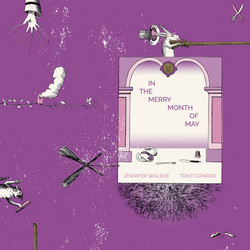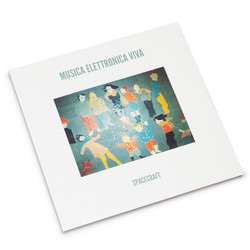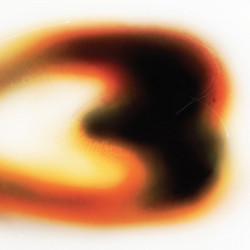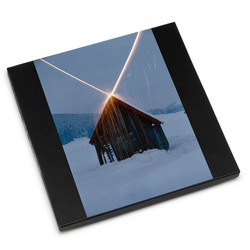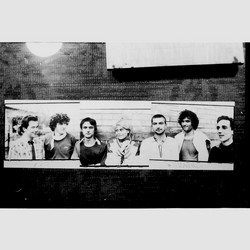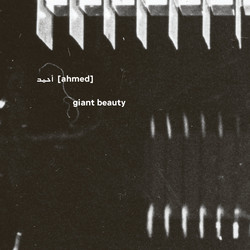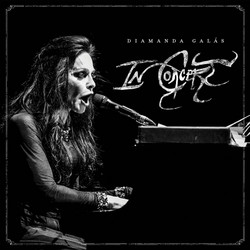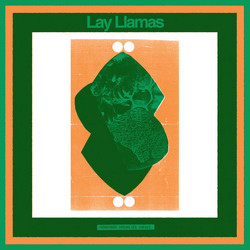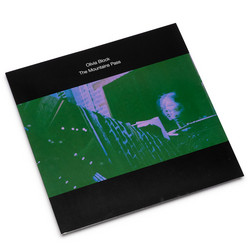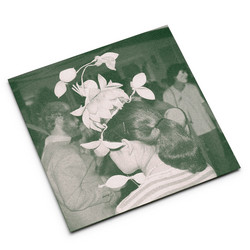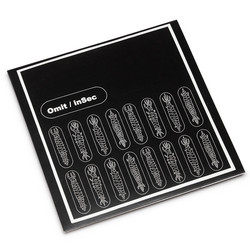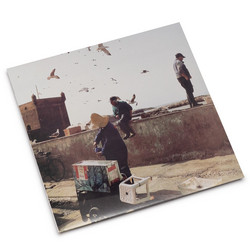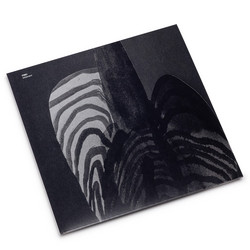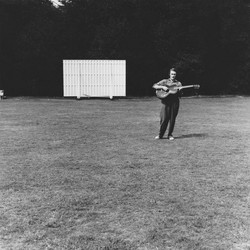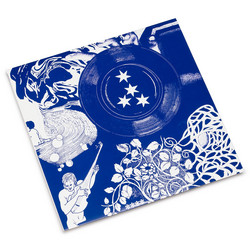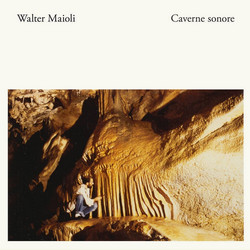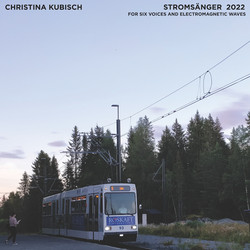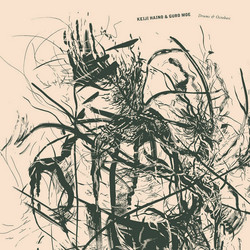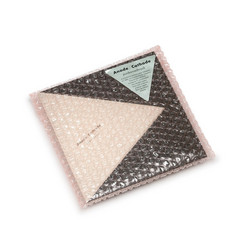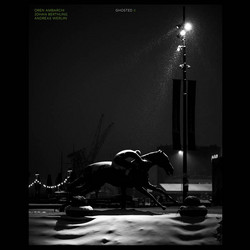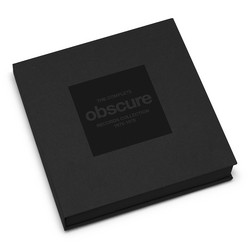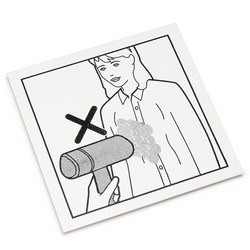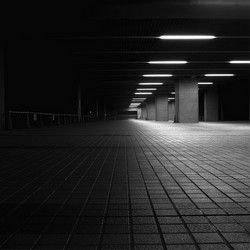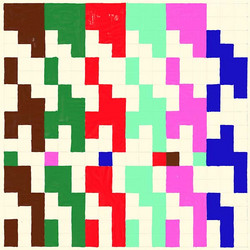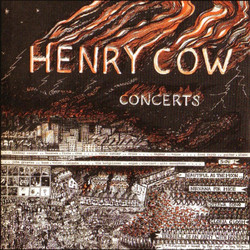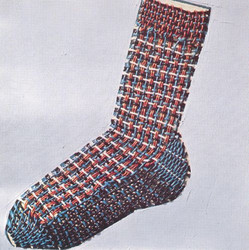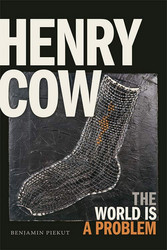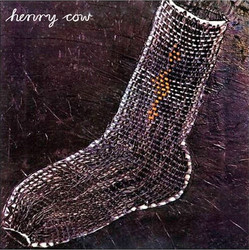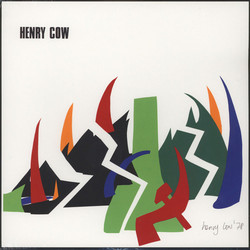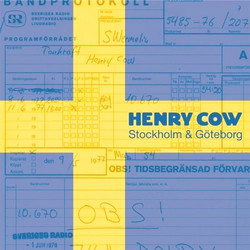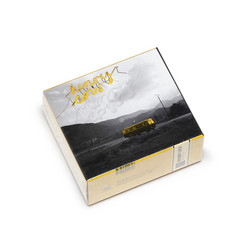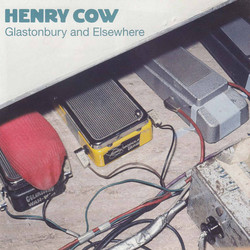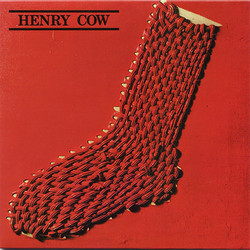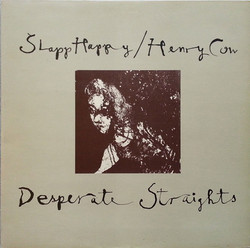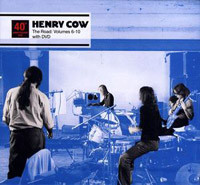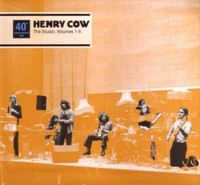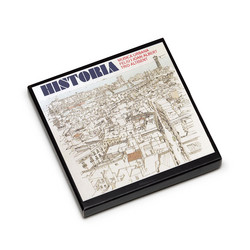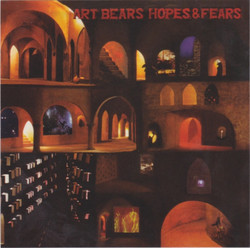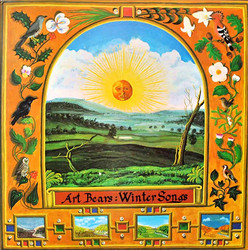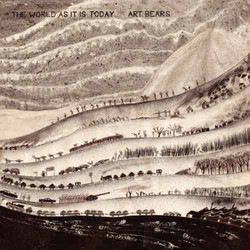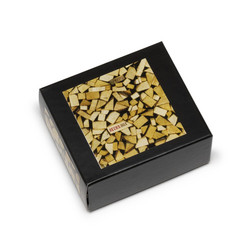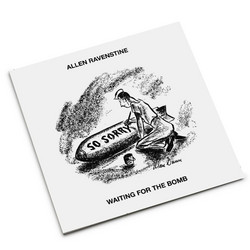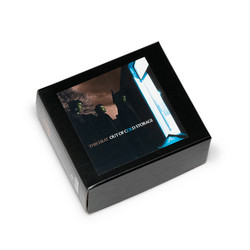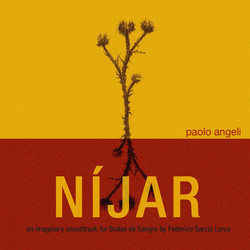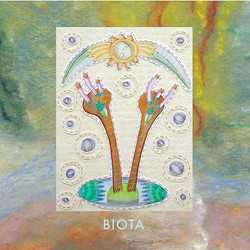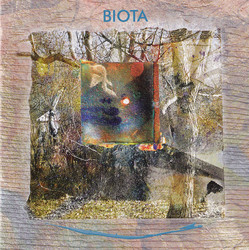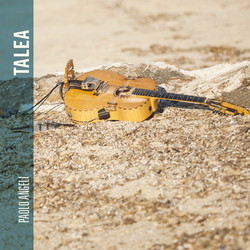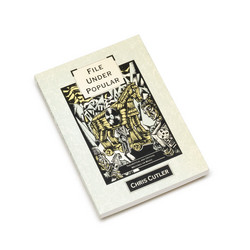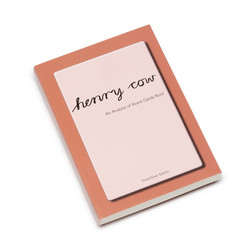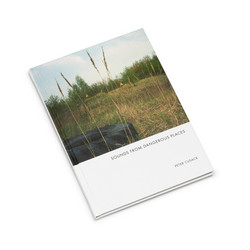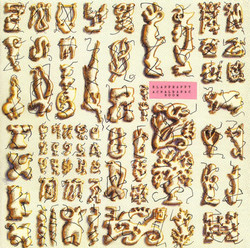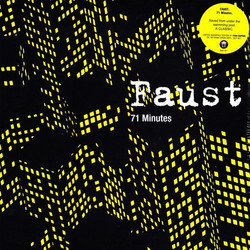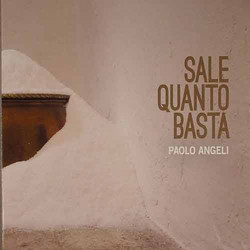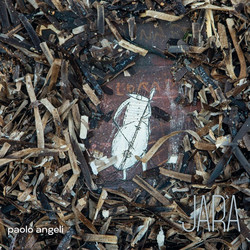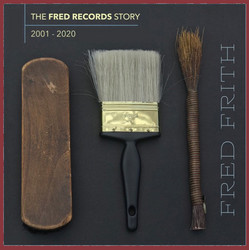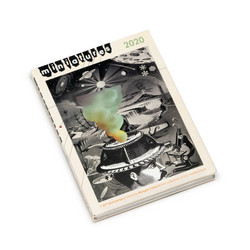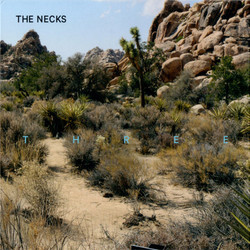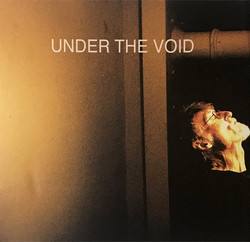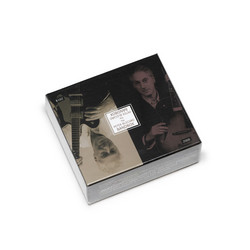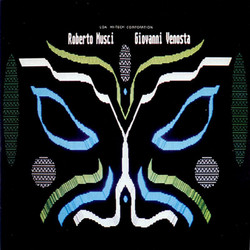Henry Cow
The Road: Volumes 1-5
2015 Restock. There are bands whose finest work allows its roots full exposure while burying them. Henry Cow was one of these, emerging at a time of widespread upheaval and making bold new statements and fashioning order of the resultant chaos. The label has a history of producing similarly fine compendiums, most notably from groups such as Faust, Art Bears and This Heat, but the Cow set is a more ambitious project, befitting the band’s complex style and legacy. With roots deep in the multi-hued music of the late 1960s that it would be a misleading oversimplification to call progressive rock, Fred Frith, Chris Cutler, Tim Hodgkinson and Cow’s less permanent membership crafted an all-inclusive music that managed to remain its own, stubbornly refusing to allow fickle taste and industry standards to dictate their choices; this set is the most complete documentation of their journey. Its three-volume layout encompasses nine discs and one DVD of live material. The first two (The Road Vols. 1-5 from 1971-1976 and The Road Vols. 5-10 1976-1978, respectively) present a chronological live survey, while the third, Studio, contains remastered versions of Henry Cow’s studio catalog. The set can be seen as a series of aural snapshots, sometimes out of strict chronological order. As with their Concerts album but on a much larger scale, the collection documents the band’s revised and reestablished identity.
Disc 1 covers the years leading up to their first album, Leg End. Early versions of several pieces from Leg End are featured; the most interesting is perhaps the full version of Fred Frith's dance score With the Yellow Half Moon and Blue Star, a 13 minute piece of which only a fragment made it onto their debut album. The work in progress versions of Teenbeat, Citizen King and Amygdala show just how far their abilities as composers and arrangers developed in those formative years, and just how musically ambitious they were. A pair of unreleased Fred Frith compositions clearly show his folk club background, while the brief John Greaves piano piece Lottie Hare is like a very early foretaste of Kew.Rhone. During this period their sound mutated; their first works are of a piece with Egg and Robert Wyatt's Soft Machine, but they soon developed a darker, more strident and complex tone. It was all a bit too much for Geoff Leigh, who departed between Leg End and Unrest (although he remained on good terms with the band and was an occasional guest on stage and in the studio in the years that followed).
Disc 2 sees the arrival of Lindsay Cooper, the first classically trained member of the band, and her bassoon and oboe helped to move the sound further away from jazz and closer to contemporary avant garde music. First on the menu is a live runthrough of some Unrest material. Even when they were performing composed pieces Henry Cow could surprise their audience - here, the main body of Half Asleep Half Awake is played in the middle of Ruins, the two radically different pieces blending together seamlessly. Next we get a quartet version of the band (minus Lindsay Cooper; things got messy around the time of the alliance with Slapp Happy) working through instrumental sketches of what would later become Living in the Heart of the Beast. Finally we get the 6 piece version of the band with Cooper and Dagmar Krause giving a taut, clenched fist reading of Living in the Heart of the Beast, including some scarily intense guitar from Fred Frith and a guest vocal by Robert Wyatt. Overall this is perhaps the least successful disc in box 1 - as good as LITHOTB is, hearing what is effectively an instrumental version immediately followed by the same piece of music with vocals is a bit too much of a good thing. It's fascinating to compare the two, but it doesn't necessarily make for a great back to back listening experience.
Disc 3 takes things up to the departure of John Greaves, the bulk of it drawn from a concert in Hamburg, along with 3 tracks recorded in Italy with Robert Wyatt as guest vocalist. The structure of the Hamburg concert is similar to the Peel session on Concerts; Beautiful (or rather Fair)as the Moon... bookends renditions of Gloria Gloom, Nirvana for Mice (rabbits on this occasion) and Ottawa Song, the difference here being the inclusion of a lengthy improvisation (an integral part of any Henry Cow performance) before ...Terrible as an Army with Banners brings things back into sharp focus. The interplay between the musicians is breathtaking; the running order and bridging passages were never the same for 2 consecutive performances, but the composed pieces are delivered seamlessly and the switch from freeform to rigorously composed and arranged music is likewise accomplished with jaw- dropping ease. The Robert Wyatt tracks are a nice bonus, including a rip roaring version of We Did It Again.
Discs 4 and 5 see Henry Cow once again performing as a quartet. John Greaves had departed and not yet been replaced, while Dagmar was ill. With a tour of Scandinavia to complete, the remaining musicians (Frith, Hodgkinson, Cutler and Cooper) hit on an innovative solution. Each concert was improvised in darkness or by candlelight, with only a couple of fixed reference points. In addition to their regular instrumentation, tapes were prepared which could be triggered by Cooper, Frith or Hodgkinson at any time - one of the tapes included Henry Cow's recorded output to date, so at times you get to hear Henry Cow improvising live with Henry Cow in the studio. It's a dark, mysterious journey but it's also highly rewarding and worth listening to closely. As Chris Cutler pointed out elsewhere on the web, it has the logic and structure of a composition despite being almost totally improvised. Rock music didn't go any further out than this in the 70s; essential listening, and worth purchasing the box for on its own.
The booklet contains a lot of interesting material, especially reminiscences by former band members. John Greaves and Geoff Leigh contribute warm, witty memoirs that don't gloss over the low points but which make it clear that the high points more than compensated for them. Elsewhere there are sketchier reminiscences from other band members and some interesting commentaries on the music itself, generally by the composers themselves, along with a detailed chronology of their touring history.
The Henry Cow box is an object lesson in what a box set should be - informative enough for the most obsessive fan, comprehensive, remastered beautifully (the sound quality is variable, but having heard some of the source material Bob Drake has once again worked wonders) and extremely well packaged. As always there are one or two minor gripes - a few minutes of Henry Cow before Chris Cutler joined would have been interesting, for instance - but for anybody with an interest in RIO/Avant prog this is essential stuff. Established fans will get a clear picture of the band's development (something their studio work only hints at) and an insight into the contributions made by the different members, and newcomers may understand just why this obscure, long-defunct band of wilfully obscure musical eccentrics continue to inspire such a fanatically loyal (if not exactly numerous) following to this day. An emphatic 5 stars.
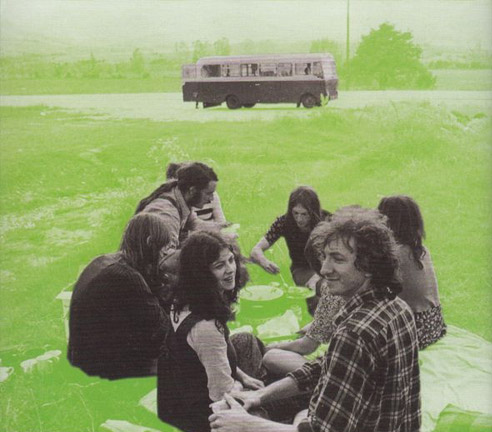
Part 1 of 40th Anniversary Box-set.
Comes in a cardboard box with 5 discs in 4 jewelcases and a 60-page book inside. An empty jewelcase is a placeholder for the "Concerts" CD.
Discs have individual numbers: HC7, HC8, HC9, HC10 & HC11.
Tracks 1-1, 1-2, 1-5 from rehearsal tapes, recorded by Jack Balchin, date unknown but before Legend. Other tracks [on disc 1] from various unmarked tapes 1971-3.
Tracks 2-1 to 2-5: Unmarked tape, 1974.
Tracks 2-7 to 2-23: Recorded by Jan Smagge at the concert with stereo reel-to-reel at the Vereniginggebouw, Halstere, on 26 September 1974. Concert mix by Charles Fletcher, we think.
Tracks 2-24 to 2-32: Recorded at Theatre des Champs-Elysees, Paris on May 8 1975, probably to cassette, by unidentified hand.
Tracks 3-1 to 3-13 Public concert recorded for NDR Jazz Workshop, Hamburg on 26th March, 1976.
Track 3-14 Piazza Navona, Rome, 27 June, 1975. With Robert Wyatt. Unknown audience source.
Track 3-15 Theatre des Champs-Elysees, Paris on May 8, 1975, probably to cassette, by an unidentified hand.
Tracks 4-1 to 5-7 recorded at Studentersamfundet, Trondheim 26 May 1976. Cassette recording from mixing desk made by band.
